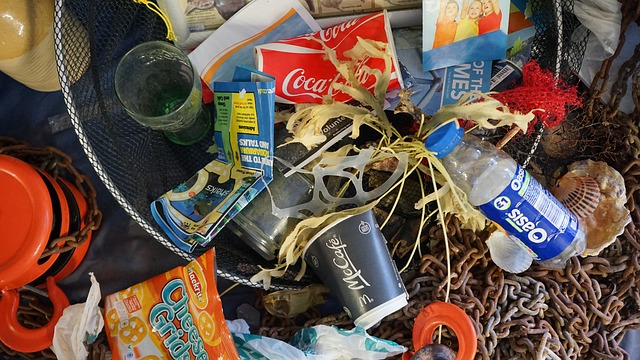................................................................................................................................................................
Health and Safety Issues due to Solid Wastes
By: Haseeb Jamal
Health and Safety Issues
Solid waste
management crises are directly related to the human health, economy and
environment.
In Pakistan, due to
improper planning and lack of funding the solid waste management crises are
turning into worst.
Open dumps of municipal solid waste (MSW) are
responsible for the number of vector diseases in Pakistan.
Increase in per
capita solid waste generation rate is another serious threat for the management
authorities in the developing world.
Due to diverse
living practices in some towns, management authorities cannot provide uniform
solid waste management system, therefore in Pakistan so many non-technical
solid waste management systems are working.
Open dumping, open
burning and improper sanitary
landfills can be observed everywhere in the country.
All activities in
solid waste management involve risk, either to the worker directly involved, or
to the nearby resident.
Risks occur at
every step in the process, from the point where residents handle wastes in the
home for collection or recycling, to the point of ultimate disposal.
Overview of Health Risks due to Solid Waste
Health risks from
waste are caused by many factors, including:
1.
The nature of raw waste, its composition (e.g., toxic,
allergenic and infectious substances), and its components (e.g., gases, dusts,
leachates, sharps);
2.
The nature of waste as it decomposes (e.g., gases, dusts,
leachates, particle sizes) and their change in ability to cause a toxic,
allergenic or infectious health response;
3.
The handling of waste (e.g., working in traffic, shoveling,
lifting, equipment vibrations, accidents);
4.
The processing of wastes (e.g., odor, noise, vibration,
accidents, air and water emissions, residuals, explosions, fires);
5.
The disposal of wastes (e.g., odor, noise, vibration, stability
of waste piles, air and water emissions, explosions, fires).
In developing
countries like Pakistan, a significant portion of the waste pickers found at
open dumps are children and women.
Children are
particularly vulnerable to toxins because they ingest more water, food, and air
per unit of body-weight; their metabolic pathways are less developed to
detoxify and excrete toxins; and any disruption during their growth years can
easily disrupt development of their organ, nervous, immune, endocrine and
reproductive systems.
People living and
working in the vicinity of solid waste processing and disposal facilities also
are exposed to environmental health and accident risks.
These risks relate
to the emissions from the solid wastes, the pollution control measures used to
manage these emissions, and the overall safety of the facility.
As with occupational
risks, these risks are being substantially managed in high-income countries,
but are still largely unmanaged in most developing countries.
Haseeb
Jamal.
I am a Civil Engineer, graduated from University
of Engineering and Technology, Peshawar, Pakistan in 2010. I also
have a PG-Diploma in Disaster Management and
MS in Urban
Infrastructure Engineering (In Progress). My expertise include civil
related softwares like AutoCAD,
SAP2000, MS Project, Primavera, MS Office and GIS. My technical skills include
project management, monitoring and evaluation, structural assessment, disaster risk
management, Quantity survey, land survey, material testing, site management and
technical writing. I am trained in writing project progress reports as well as
proposals and concept papers. I have also received advanced training on
surveying, proposal writing, Monitoring and Evaluation of projects as well as
organizations.
I
have worked as Project Engineer at National Research and Development
Foundation, Peshawar and CENCON Associates. I also worked with Spectra
Engineering Solutions as Senior Civil Engineer in monitoring of World
Bank and UNDP funded projects all over Khyber Pakhtunkhwa and FATA. Currently,
I am working as Deputy Manager Development at NayaTel, Peshawar.


No comments:
Post a Comment